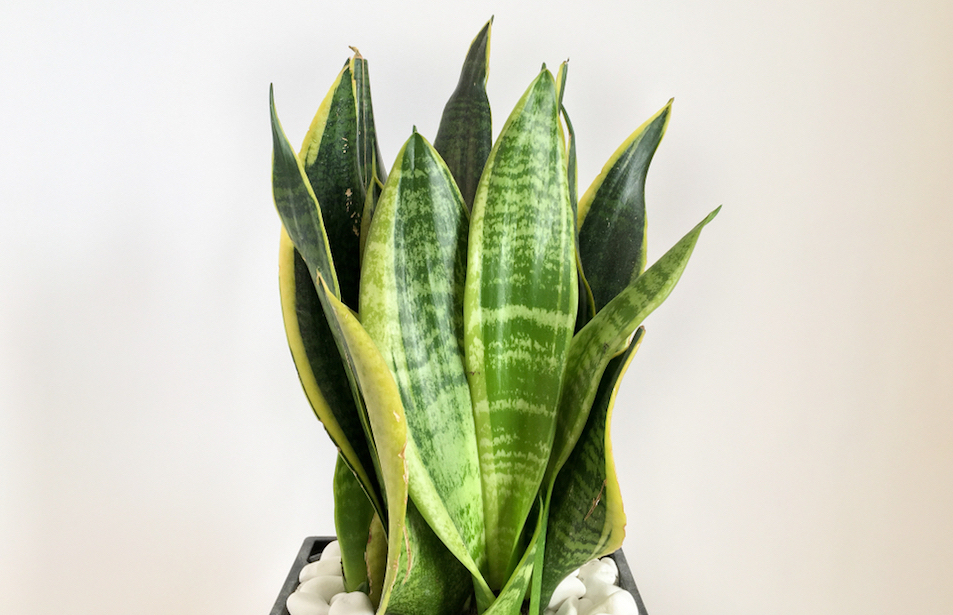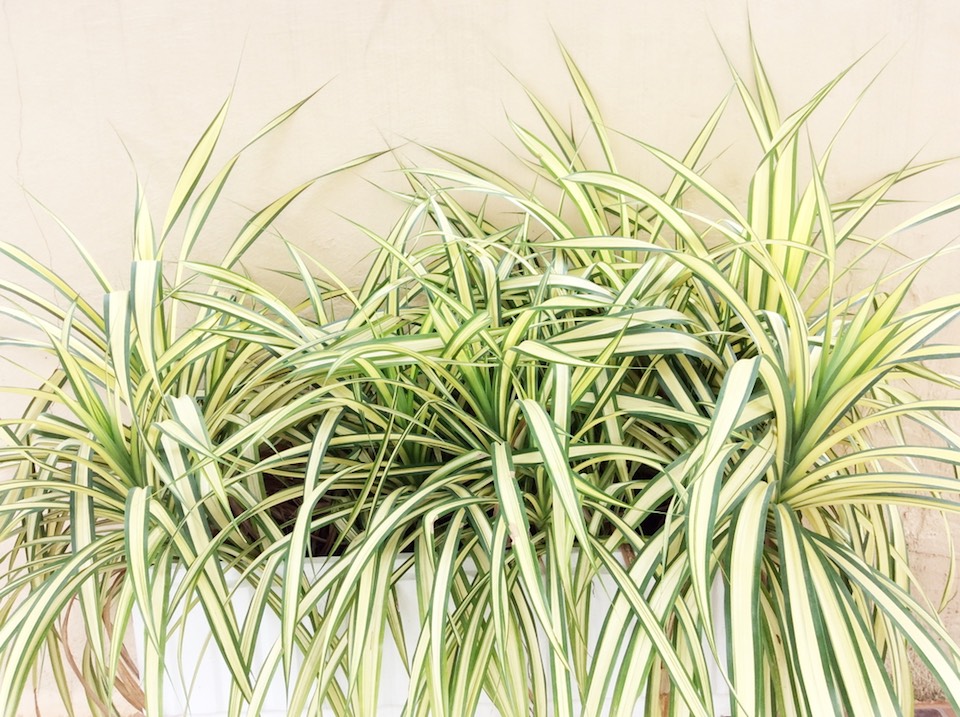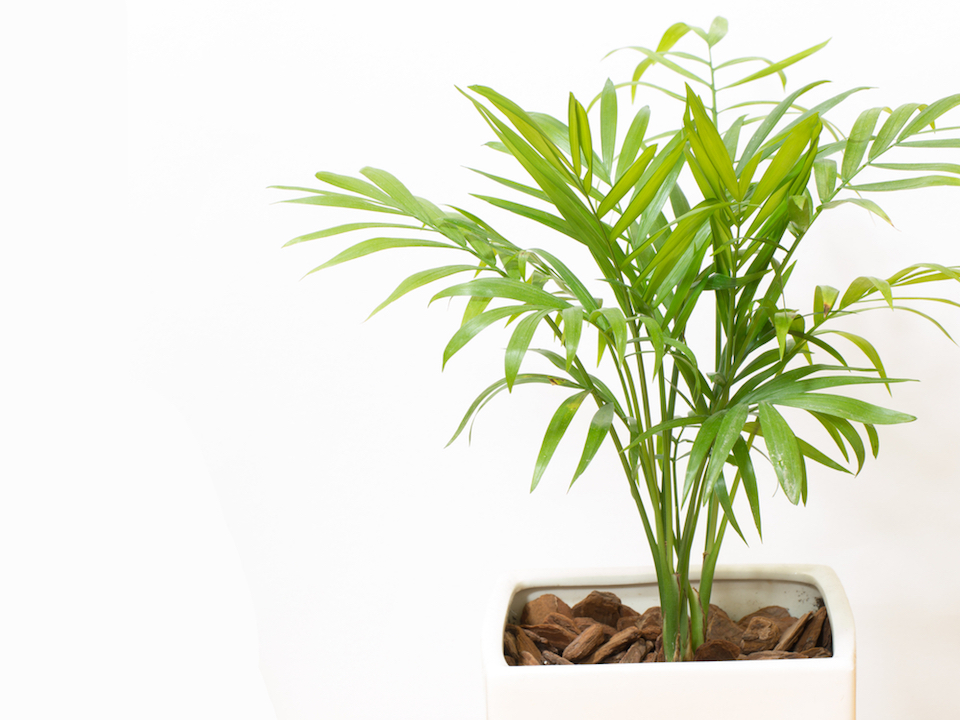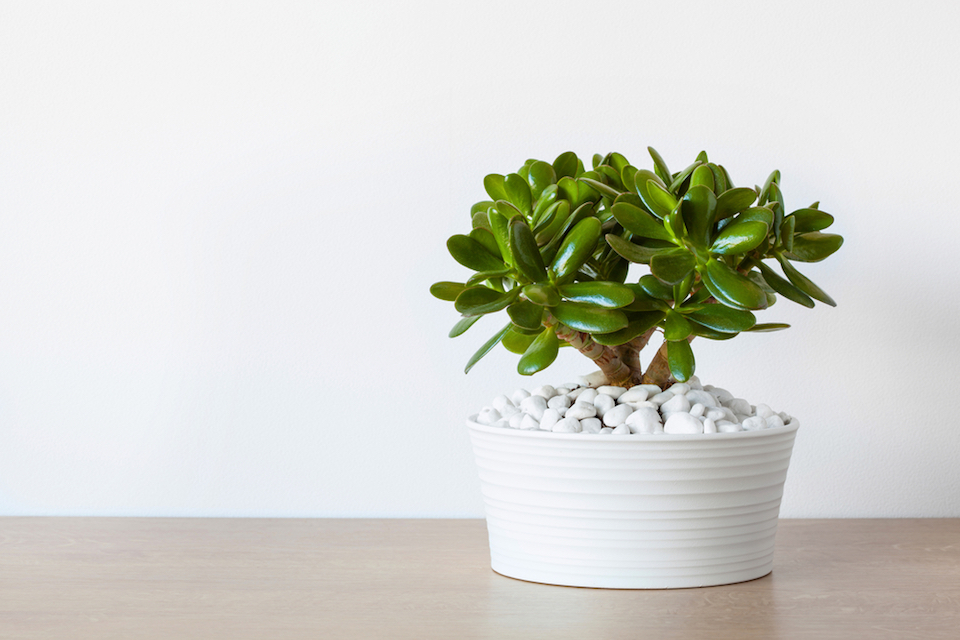The Best Indoor Office Plants”and How to Care for Them
Here’s a list of the five best indoor office plants and some simple tips on how to care for them. Spoiler: Don’t over-water!
The Best Indoor Office Plants”and How to Care for Them
Here’s a list of the five best indoor office plants and some simple tips on how to care for them. Spoiler: Don’t over-water!

That’s why we’ve pulled together this simple guide to choosing the best – and easiest-to-care-for indoor office plants, as well as a few simple instructions to prevent your new green friend from heading to an early grave.
Best Indoor Office Plants
It’s important to set up yourself – and your office mates – for success. That means choosing a plant that will do well without a ton of natural light, isn’t incredibly water-sensitive, and that can tolerate the often-dry office air. These five fit the bill:

The snake plant (Sanseveria trifasciata) is perfect for the office. It’s super-easy to care for and is great at purifying the air, according to NASA. It has stiff spear-like leaves that shoot upwards and are often streaked with yellow. It does well in indirect sunlight and only needs to be watered every two to three weeks. This is a plant you actually have to try to kill – overwatering is really its only kryptonite.

Devil’s ivy (Epipremnum aureum) is far less intimidating that it sounds. Also commonly known a pathos, this vine-y plant with heart-shaped, waxy, green leaves (sometimes with splashes of white or yellow) earned its moniker because it’s nearly impossible to kill. Perfect for an office setting! Devil’s ivy does fine in low light and doesn’t require much attention. Water when the soil is dry to the touch.

Another plant with a high tolerance for neglect is the spider plant (Chlorophytum comosum). This beauty has narrow leaves with white or yellow stripes, and in the spring, producers “runners” that spawn more little baby plants that sort of resemble spiders, hence the name. This is another great one for air purification. Care is simple: Water when the top inch or two of soil is dry, and allow it to dry out between waterings. Bright to medium, indirect sunlight is best, but the spider spider plant is tough and should do fine even in offices without a ton of natural light.

Parlor palms (Chamaedora elegans) require a bit more water than some of the other suggestions in this list, but they don’t require much else. These slow growing densely-leaved single trunked palms do well in lower-light situations and don’t need a ton of space. When the top of the soil is dry, give them a good soaking. In winter or low light conditions they require less watering than if they’re getting a lot of sun.

Finally, we have the jade plant (Crassula ovata), which is a type of branched succulent shrub that originated in South Africa. Jades do well in dry, warm settings, and they prefer a bit more light. A south-facing windowsill is ideal. Water when the top of the soil is dry to the touch.
What to Avoid
It’s best to steer clear of blooming plants, such as tropical hibiscus and Arabian Jasmine, since they tend to require more natural light, could set your office mates’ pollen allergies into overdrive, and can be overly perfume-y for a shared workspace.
A Final Word of Advice
As mentioned above, every type of plant has its own needs when it comes to watering. That said, here’s a word to the wise: it’s much easier to overwater a plant that you realize. Over-watering can kill most of these plants more quickly than under-watering (over-watering causes root rot, and there’s no coming back from that). In general, if the plant is drooping, getting brown tips or dry, yellow leaves towards the bottom, you’re probably under-watering it. Water less in winter or in offices where the air conditioning is kept on high. A rigid watering schedule isn’t required for the plants we’ve suggested, but if there are multiple people caring for your greenery, or you tend to be forgetful, a watering schedule is a good idea. And lastly: always use a pot with a drainage hole.
SaveSave
SaveSave
Follow us
This work is licensed under a Creative Commons Attribution-NoDerivatives 4.0 International License.
Want to republish a Modern Farmer story?
We are happy for Modern Farmer stories to be shared, and encourage you to republish our articles for your audience. When doing so, we ask that you follow these guidelines:
Please credit us and our writers
For the author byline, please use “Author Name, Modern Farmer.” At the top of our stories, if on the web, please include this text and link: “This story was originally published by Modern Farmer.”
Please make sure to include a link back to either our home page or the article URL.
At the bottom of the story, please include the following text:
“Modern Farmer is a nonprofit initiative dedicated to raising awareness and catalyzing action at the intersection of food, agriculture, and society. Read more at <link>Modern Farmer</link>.”
Use our widget
We’d like to be able to track our stories, so we ask that if you republish our content, you do so using our widget (located on the left hand side of the article). The HTML code has a built-in tracker that tells us the data and domain where the story was published, as well as view counts.
Check the image requirements
It’s your responsibility to confirm you're licensed to republish images in our articles. Some images, such as those from commercial providers, don't allow their images to be republished without permission or payment. Copyright terms are generally listed in the image caption and attribution. You are welcome to omit our images or substitute with your own. Charts and interactive graphics follow the same rules.
Don’t change too much. Or, ask us first.
Articles must be republished in their entirety. It’s okay to change references to time (“today” to “yesterday”) or location (“Iowa City, IA” to “here”). But please keep everything else the same.
If you feel strongly that a more material edit needs to be made, get in touch with us at [email protected]. We’re happy to discuss it with the original author, but we must have prior approval for changes before publication.
Special cases
Extracts. You may run the first few lines or paragraphs of the article and then say: “Read the full article at Modern Farmer” with a link back to the original article.
Quotes. You may quote authors provided you include a link back to the article URL.
Translations. These require writer approval. To inquire about translation of a Modern Farmer article, contact us at [email protected]
Signed consent / copyright release forms. These are not required, provided you are following these guidelines.
Print. Articles can be republished in print under these same rules, with the exception that you do not need to include the links.
Tag us
When sharing the story on social media, please tag us using the following: - Twitter (@ModFarm) - Facebook (@ModernFarmerMedia) - Instagram (@modfarm)
Use our content respectfully
Modern Farmer is a nonprofit and as such we share our content for free and in good faith in order to reach new audiences. Respectfully,
No selling ads against our stories. It’s okay to put our stories on pages with ads.
Don’t republish our material wholesale, or automatically; you need to select stories to be republished individually.
You have no rights to sell, license, syndicate, or otherwise represent yourself as the authorized owner of our material to any third parties. This means that you cannot actively publish or submit our work for syndication to third party platforms or apps like Apple News or Google News. We understand that publishers cannot fully control when certain third parties automatically summarize or crawl content from publishers’ own sites.
Keep in touch
We want to hear from you if you love Modern Farmer content, have a collaboration idea, or anything else to share. As a nonprofit outlet, we work in service of our community and are always open to comments, feedback, and ideas. Contact us at [email protected].by Andrew Amelinckx, Modern Farmer
June 13, 2018
Modern Farmer Weekly
Solutions Hub
Innovations, ideas and inspiration. Actionable solutions for a resilient food system.
ExploreExplore other topics
Share With Us
We want to hear from Modern Farmer readers who have thoughtful commentary, actionable solutions, or helpful ideas to share.
SubmitNecessary cookies are absolutely essential for the website to function properly. This category only includes cookies that ensures basic functionalities and security features of the website. These cookies do not store any personal information.
Any cookies that may not be particularly necessary for the website to function and are used specifically to collect user personal data via analytics, ads, other embedded contents are termed as non-necessary cookies.